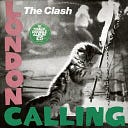![]() For a lot of us, 2017 was a year to figure out which side we were on. Indeed, for many Americans, especially those of us who had been living relatively comfortable lives, it was a revelation to realize there were sides — and those sides are at something very much approaching a war. Neutral ground is disappearing. You have to ask yourself: Am I going to be an enemy or an ally?
For a lot of us, 2017 was a year to figure out which side we were on. Indeed, for many Americans, especially those of us who had been living relatively comfortable lives, it was a revelation to realize there were sides — and those sides are at something very much approaching a war. Neutral ground is disappearing. You have to ask yourself: Am I going to be an enemy or an ally?
For people with privilege — white, male, straight, able-bodied, cis; there are as many forms of privilege as there are oppression — there really is no third option. Unless you’re consciously trying to undo the power structure that oppresses others, you’re sustaining it.
Talk like this gets one labeled as a “social justice warrior,” which I have never quite understood as an insult. Which word in that phrase is supposed to be bad? “Social,” “justice,” or “warrior”? I’ll take any one of them, but I really do prefer “ally.”
I like ally because it implies deference to some nonspecific central goal. Allies don’t necessarily lead — they support. Allies don’t make unilateral decisions. Just as important: Being an ally doesn’t presume friendship, and mere friendship doesn’t make you an ally.
In the wake of Trump’s election, we’ve seen white pundits twist themselves into knots trying to explain how millions of people could vote for a white supremacist without themselves being racist.

